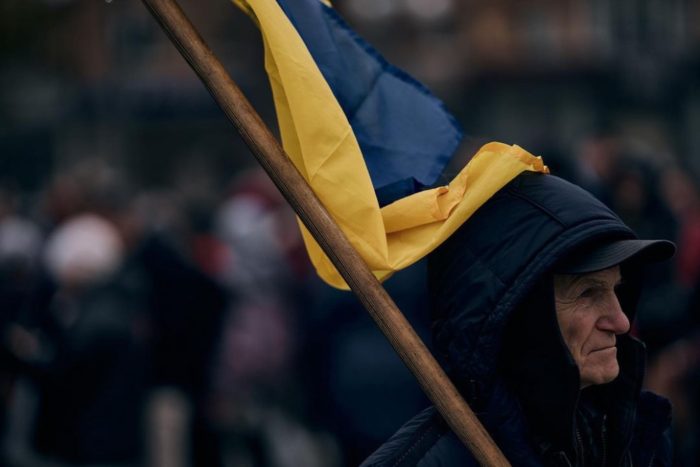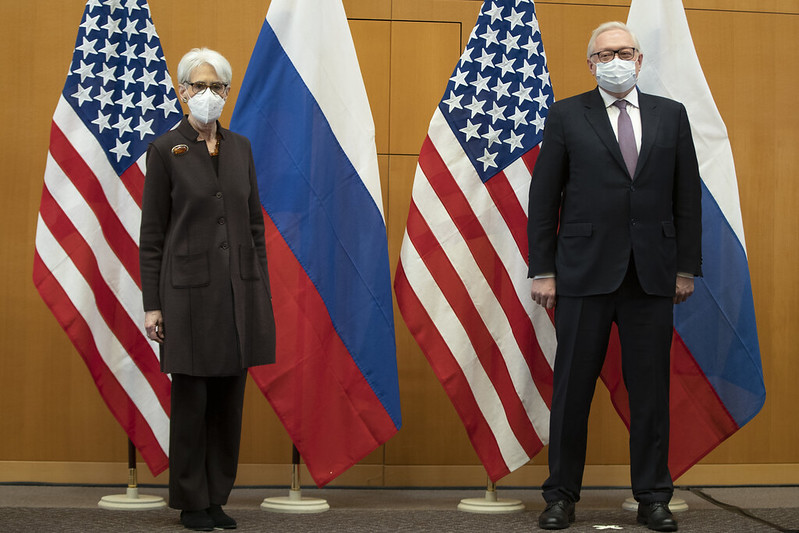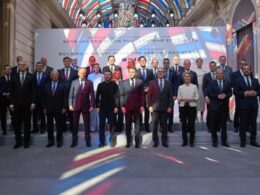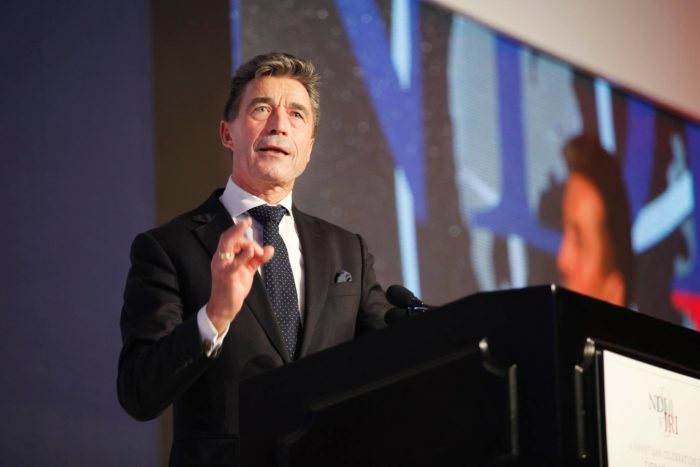Spain is hosting a NATO Summit in Madrid on 28, 29, and 30 June 2022. It is the 9th summit since the war started on 20 February 2014. NATO leaders are meeting in Madrid at what the Alliance describes as “a pivotal time for our security."
"Russia's war against Ukraine has shattered peace in Europe, caused far-reaching energy and food crises, and shaken the rules-based international order. ... “At the Madrid Summit, Allies will continue to adapt, taking decisions to keep NATO strong and ready in a more dangerous world. Heads of State and Government will agree to strengthen deterrence and defense and support Ukraine for the longer term. They will agree on the 2022 Strategic Concept, which will be a roadmap for the Alliance in the years to come. Allies will also boost cooperation with partners, enhance resilience and sharpen NATO's technological edge – all underpinned by the necessary investments in our collective defense,” a communique states.
It is indeed a pivotal time for our security. Still. 3050 days after the actual pivot point: 20 February 2014. International security is at peril first of all because Putin more than 8 years ago decided to invade, occupy and illegally annex Ukrainian territory, enforce a maritime blockade of the Ukrainian ports in the Sea of Azov, establish jurisdiction over Ukrainian maritime exclusive economic zones, occupy its gas rigs and illegally extract its gas deposits, and not least, start a hybrid war against both Ukraine, Europe, and the USA.
The present situation is, however, also partly a result of our own doing. The full-scale invasion as of 24 February 2022 could have – and should have - been avoided if the Alliance had chosen to act according to its strategic concept. According to its second essential core task (Crisis management), NATO members have signed on to the concept of stopping “ongoing conflicts where they affect Alliance security, and to help consolidate stability in post-conflict situations where that contributes to Euro-Atlantic security.”
If we had acted resolutely when challenged, Russia would most probably have been deterred. If we at the time had decided to immediately strengthen our defense budgets, started rebuilding our force and command structures, communicated our red-lines, and forward-deployed units to Ukraine, and helped Ukraine rebuild its Armed Forces, we would have been communicating in a manner Russia would have understood. The world's biggest military alliance would have demonstrated both the will and ability to respond to Russian transgressions of international law. We would have deterred and possibly avoided a full-scale war on the European continent.
Instead of “speaking softly and carrying a big stick,” NATO has until now held 8 summits “speaking loudly” only. It has been expressing its concerns and deciding upon minor adjustments to its force posture. Forces have been deployed eastwards. New battlegroups have been established. The USA has increased its military presence in Europe. But no new forces of substance have been generated. Critical vulnerabilities have not been closed. Defense budgets have not been strengthened according to ambitions.
At the Wales summit in 2014, the NATO members decided on an ambition – not a binding pledge – to halt any decline in defense expenditure; aim to increase defense expenditure in real terms as GDP grows; aim to move towards the 2% guideline within a decade to meet their NATO Capability Targets and fill NATO's capability shortfalls. 8 years later, only 10 out of 30 countries have met the declared goal of 2% defense expenditure as a share of GDP and 20% equipment expenditure as a share of defense expenditure. 5 out of 30 meet neither of the two requirements (Belgium, Canada, Germany, Portugal, and Slovenia).
Why is this important? The guidelines were decided in 2006 to ensure the Alliance’s military readiness, and serve as an indicator of a country’s political will to contribute to NATO’s common defense efforts. Failing to do both for years has helped convince Russia that the West is weak and lacks both the will and ability to respond to its aggressive foreign policy. An assessment reinforced by years of NATO doing just that: inaction.
According to the President of Lithuania, Gitanas Nauseda,
“for decades, the West has failed to understand what Russian President Vladimir Putin’s regime is about — namely expansionism, revisionism, violence, rule by fear and coercion. Russia is not interested in creation or cooperation, but rather in destruction and rule by force. The time has come to understand that Russia cannot be stopped by persuasion, cooperation, appeasement, or concessions.”
During the upcoming NATO summit, the Alliance must make a clear break with its past policy of “unity for the sake of unity” at the cost of “will and ability” and, ultimately, deterrence and our common security. The member states must leave the summit with a clear commitment to act as a Military Alliance and force Russia to withdraw to its internationally recognized borders as of 1991.
NATO needs to address its role as the defender of international rule of law, liberal democracies, and our shared values and principles. It needs to evaluate the causes for its inability to act according to its strategic concept and the ramifications of its failure to act when European security was threatened in February 2014.
NATO’s primary objective must be to reestablish deterrence. It must make Russia believe that it has what it takes to defend democracy, our common values, and principles, and international rules-based order. The Alliance must demonstrate that it is committed to filling words with actions.
This requires a pledge to urgently invest at least 2% of the GDP in defense to rebuild the force and command structure needed to provide deterrence and build the resilience needed to sustain a war. The words "Igitur qui desiderat pacem, praeparet bellum" - If you want peace, prepare for war – reman eternal true.
Equally important, it must address the Russian “fait accompli” strategy, using the threat of nuclear escalation as a means to secure freedom to use military force as an integrated part of its increasingly more aggressive foreign policy. With an adversary willing and able to escalate a conventional conflict by (threatening with) the use of nuclear weapons, we must renew our "nuclear culture," regain control of rhetoric, and plan and conduct exercises in which that escalation nuclear included.
NATO must also stop being deterred by the Russian Federation and start acting according to its strategic concept. It must develop its own “fait accompli” strategy. The alliance must evolve its use of military diplomacy and early forward deployment to deny Russia the possibility to challenge our willingness to engage militarily. The Alliance cannot continue to be blackmailed into submission by the threat of nuclear arms. Every time we let Russia get away with its military incursion into a neighbor country, we increase the likelihood of it invading yet another. The nuclear dilemma will not become easier if the next victim is a NATO country.
The alliance needs to reestablish both the capacities as well as the political culture needed to respond resolutely to any provocation, incident, episode, or transgression of international law. NATO must re-establish the deterrence that failed and that encouraged Russia to act with impunity across Europe, including involving the West in a hybrid war. It must increase readiness, resilience, and sustainability. The level of exercise must be intensified to both build and demonstrate warfighting skills.
The new security strategy must address the evolving security challenges, including the militarization of the Arctic, challenges to freedom of navigation in the Black Sea, the Baltic Sea, the Barents Sea, and the Arctic, and threats to the cyber domain. The lessons identified by Ukraine must be introduced into the new strategy.
The Alliance must demonstrate resolve and stop acting half-heartedly. The Powell Doctrine counsel against getting involved in “half-hearted half-wars” and argued that when using force, it should be done with overwhelming force to ensure victory. Instead of offering Ukraine just enough aid to avoid being defeated, NATO should be providing such overwhelming support that it can win the war. In my humble opinion, this includes a humanitarian intervention to help defend Ukraine (in contrast to attacking Russia).
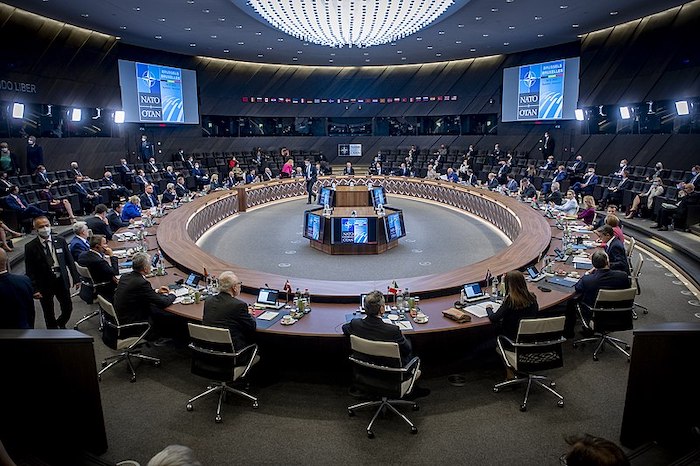
We could have come to their defense as we did for Poland in 1939 (too late), Kuwait in 1991, or Kosovo in 1999. But we chose not to. That needs to be corrected. The alliance must define its desired end-state for Ukraine and engage properly. This must be done together and aligned with Ukraine. Transparency of intent will help coordinate efforts, deter Russia and strengthen Ukrainian resilience.
I have argued relentlessly that NATO is bound to become directly engaged in Ukraine sooner or later. It is inevitable. The ambitions and tasks laid down in its strategic concept are essential for our common security. The ripple effects of the war are increasing by the day and will at one stage threaten European stability, security, and prosperity. The weapons Ukraine needs to evict Russian forces from its territory and break the maritime embargo require “operators” from the Alliance to work effectively. Additionally, Russia will continue its war until it is faced with overwhelming military power.
NATO must respond to Russian actions and statements. When it repeatedly claims that it is involved in a total (hybrid war), economic, information, and cultural war with the West, we need to respond accordingly. When sanctions are described as an act of aggression, we need to acknowledge the Russian point of view. When Foreign Minister Lavrov claims that NATO is engaged in a war with Russia through a proxy we must make take the necessary precautionary measures to meet the threat Russia is projecting.
We failed to take President Putin seriously at the Munich Security Conference in 2007. We failed to take him seriously when he decided to invade Georgia in 2008. We made the same mistake in Ukraine in 2014 and 2022. It is time to break the negative cycle.
If Russia believes itself to be at war, NATO must stop acting as if it is not. The starting point is to acknowledge that Russia is not waging war against Ukraine but against Europe and the USA.
This war can only be determined on Ukraine’s and Western terms through the use of military power partly because its the means of choice for the Russian Federation, and partly because the sole purpose of Russian occupation of Ukrainian territory is to impose terms on Ukraine. As long as Russia remains in a position to negotiate – as long as it occupies parts of Ukraine and controls the Sea of Azov and the Black Sea – it will be in a position to pressure Ukraine into submission. If it is not evicted, war has paid off.
It is time to decide: Do we defend international law, or do we concede to violence? Do we act according to NATO’s strategic concept, or do we stay deterred by Russia?
That moment, however, will only happen when western leaders stop pursuing the delusional ideas of negotiations as a means to stop Russia’s war against Europe and the USA.
It starts with the decision to urgently strengthen the armed forces of the European countries and rebuild the “toolbox” needed to ensure collective security, a decision that is more than 8 years overdue. That decision alone might suffice to end the war and force Russia to withdraw as it would signify a fully united, resilient, and determined West at last. NATO would finally be speaking a language Russia understands.
In short, we should demand that NATO make amends for failing to act according to its strategic concept when it for the first time in its history was truly challenged. As history has repeatedly shown, failing to stop a war is immensely more costly than deterring it from happening in the first place.
Will this happen? Probably not. NATO has, after all, become a political alliance first of all. That might be the core reason for its shortcomings when faced with a military threat. It will, however, take yet another step in the right direction.
Related:
- When will NATO really help Ukraine?
- Russia’s war with Ukraine affects billions. NATO could end it in a moment.
- NATO: Collective Defense or Collective Denial?
- Ukrainians never thought NATO could be afraid of Russia – Zelenskyy at summit in Brussels
- No NATO aspirations and freezing occupied Crimea for 15 years: Ukrainian position at talks with Russia
- Breakthrough at Ramstein: NATO unites to help Ukraine defeat Russia


